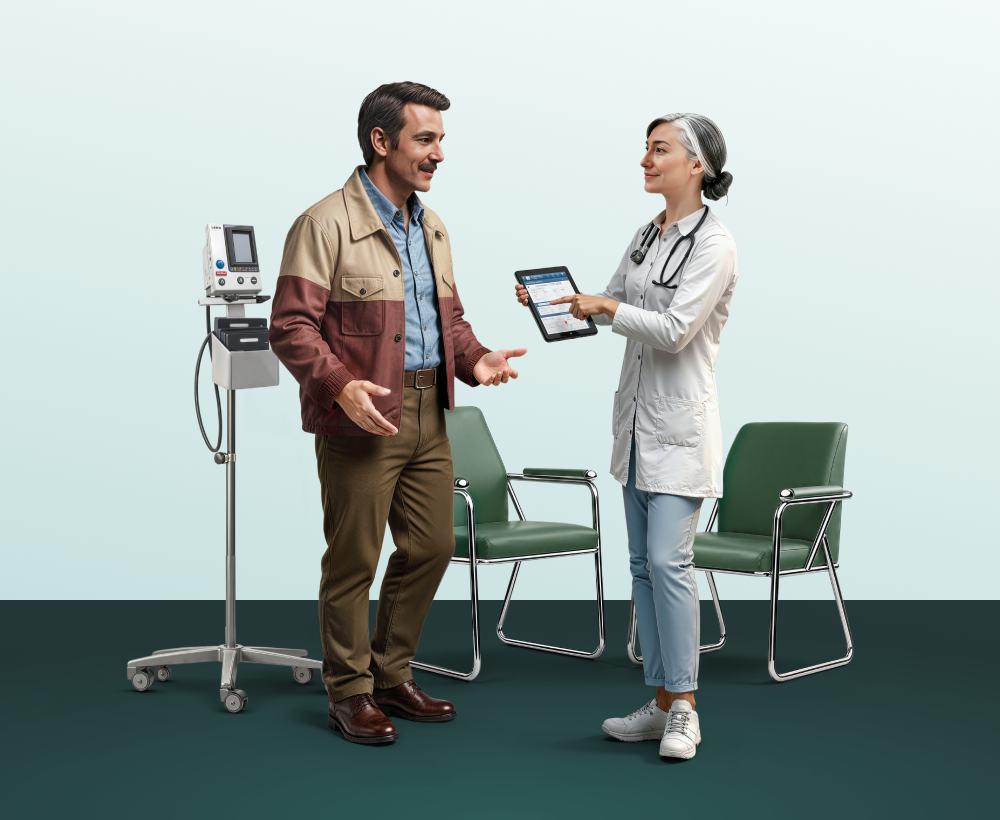
Polycythemia vera burden
Polycythemia vera (PV) can impact nearly every part of your life,
from how you feel physically and emotionally to how present you are for your family, friends, and work.
How PV affects your mood, sleep, work, or relationships is just as important as your lab results. If you’re feeling tired, foggy, or just “off,” say something. These details matter.

For many people with PV, staying under 45% becomes an emotional burden as much as a treatment goal.
The 45% hematocrit (HCT) threshold can become a daily source of anxiety and fear—of relapse, blood clots, and the emotional strain that comes with constant monitoring.

You know best how PV affects your daily life.
Your doctor needs to hear about it to help you manage your burdens and expectations.
It's important to have an open and honest conversation with your doctor as you discuss your comprehensive experience living with PV. Consider keeping track of HCT levels, iron levels, and how symptoms are affecting your life.
How PV and its symptoms can affect quality of life
Approximately 9 out of 10 people with PV are experiencing symptoms at the time of their diagnosis, but they aren’t always talked about, or even addressed, leaving them feeling isolated. Being open with your healthcare provider about what you're experiencing is key to getting the care you really need.
Approximately 2 out of 3 people with PV, even those with low-risk PV or less severe symptoms, report that their cancer symptoms reduced their quality of life, making them feel vulnerable and alone.
Nearly 8 in 10 people with PV experience emotional strain, including anxiety and stress related to their symptoms and disease.